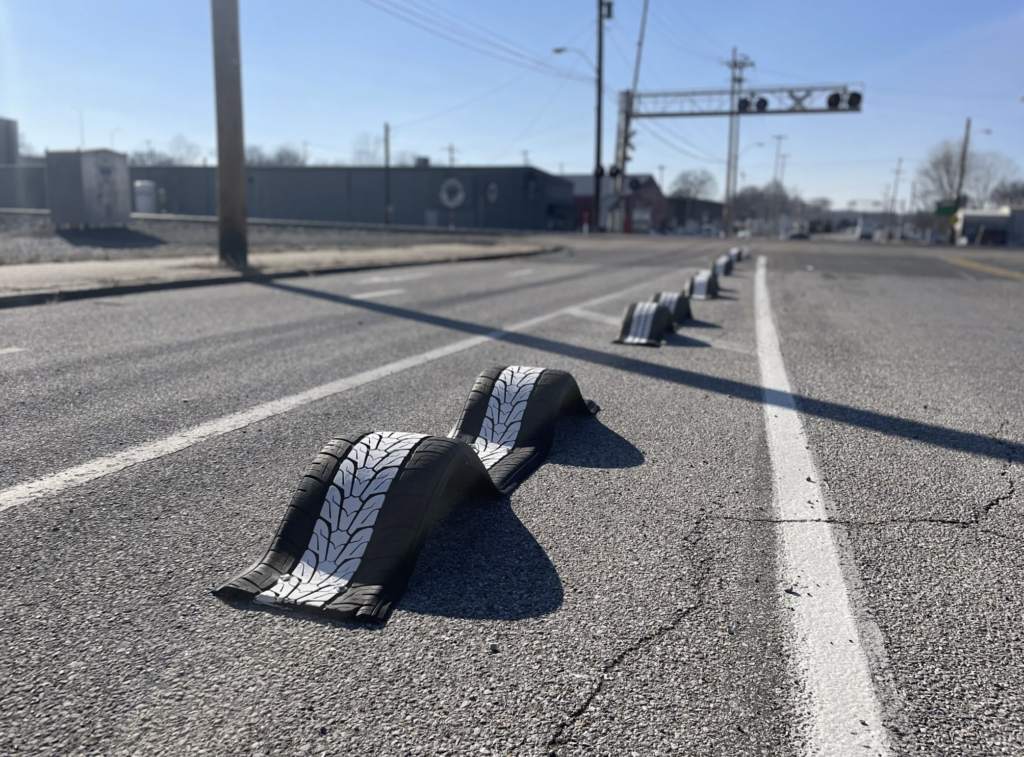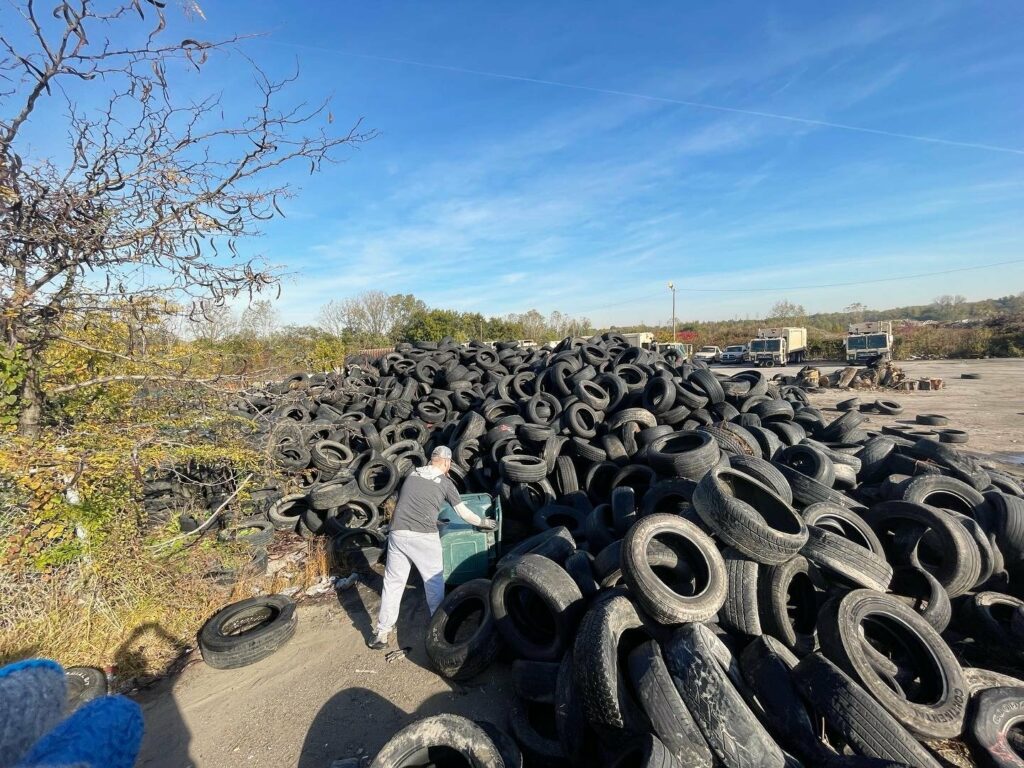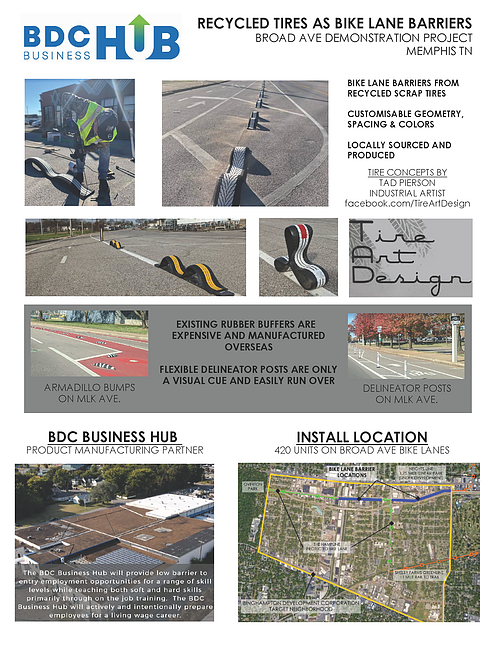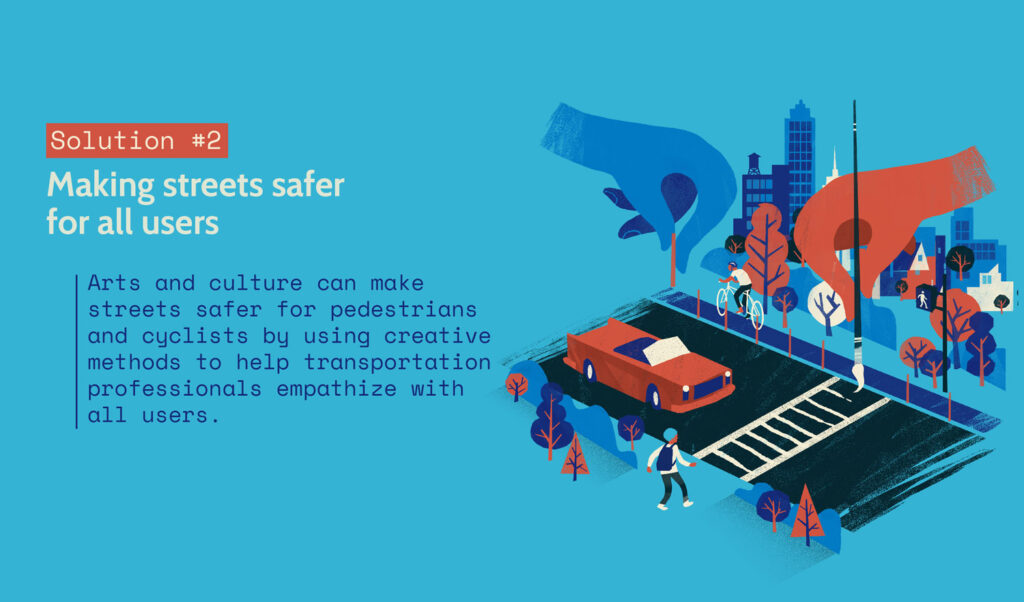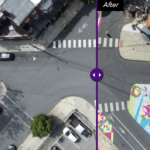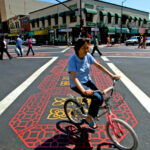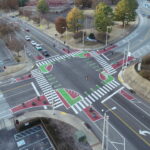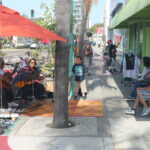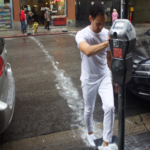Photo from Bike Ped Memphis.
Introduction
The Binghampton Development Corporation Business Hub and Tad Pierson of Tire Art Design collaborated to create one-of-a-kind bike lane barriers made of recycled tires, presenting a creative and low-cost solution that not only makes the roads safer for all users, but also helps create new job opportunities. Through this project, 450 recycled tire bike lane barriers have been installed along the bike lanes of Broad Ave in Memphis, Tennessee. This innovative reuse of common materials can help influence national efforts to find low-cost solutions that make our streets safer and more aesthetically pleasing.
The Challenge
Traffic fatalities in the Memphis area have echoed grim national trends of growing pedestrian and bike traffic fatalities. In 2020, traffic fatalities in the city were up 50% and have continued to climb. According to Smart Growth America’s 2022 Dangerous by Design report, the Memphis metropolitan area ranks as the third most dangerous metropolitan area for pedestrians. The city also has a challenge with illegally dumped tires, a material that local artist Tad Pierson has worked with for decades, creating unique art out of recycled tires and materials.
Photo from Binghampton Development Corporation
The Binghampton community is a historically disinvested neighborhood in central Memphis, composed of Black and Brown people, many of whom live below the poverty level. The community also has a large immigrant population and is a common settling place for refugees. As the character and growth of the city have shifted, community members have been pushed out, causing a loss of job opportunities, a reduction in home ownership, and increased poverty.
The Project
The Binghampton Development Corporation (BDC), a non-profit dedicated to improving the quality of life in the Binghampton community, runs a Business Hub training program that provides employment opportunities to employees who have struggled to break into the workforce. The BDC training focuses on both hard and soft skills, and employees work on projects ranging from mattress recycling to warehousing for trucking companies.
Laura Murray, a former Alta Planning + Design employee who previously worked with Tad Pierson, pitched the City of Memphis the novel idea of transforming old tires into new bike lane barriers. The city, however, was unable to fund the pilot program, but encouraged Murray and Pierson to work with a non-profit for the trial project. The BDC Business Hub was eager to support the project in their community, and saw the unique and skill-building opportunity for their training program participants.
The BDC Business Hub and Pierson partnered to develop rubber buffers that serve as a protected barrier for residents biking along Broad Ave. in central Memphis. This was done thanks to funding from People for Bikes, the Tennessee Department of Environmental Conservation, the Cummins Foundation, and the City of Memphis.
The Results
To date, 450 tire bike barriers have been installed along a mile-long stretch and have been in place for more than a year. The City of Memphis Bikeway and Pedestrian Program conducted a survey to gather feedback from the community on the project.
The city will also evaluate the program and determine its support and efficiency of the project. If satisfied with the results, these tire barriers could serve as a creative alternative to ensure the safety of bikers in the Binghampton community.
Learn more about the Tire Recycling program here!

